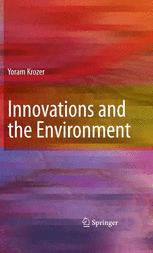

Most ebook files are in PDF format, so you can easily read them using various software such as Foxit Reader or directly on the Google Chrome browser.
Some ebook files are released by publishers in other formats such as .awz, .mobi, .epub, .fb2, etc. You may need to install specific software to read these formats on mobile/PC, such as Calibre.
Please read the tutorial at this link: https://ebookbell.com/faq
We offer FREE conversion to the popular formats you request; however, this may take some time. Therefore, right after payment, please email us, and we will try to provide the service as quickly as possible.
For some exceptional file formats or broken links (if any), please refrain from opening any disputes. Instead, email us first, and we will try to assist within a maximum of 6 hours.
EbookBell Team

4.4
92 reviewsCompanies wishing to become less environmentally polluting without incurring high (or increasing) costs must embrace innovations. There are various technologies which enable organisations to achieve large reductions in their emissions by employing resource saving, using new resources or following pollution controls. The costs of the available technologies decrease with use as adaptations are made based on practical experience. This rate of cost reduction is rapid for most industrial sectors. Environmental policies provide a further incentive for innovation, as the environmental demands of authorities can have short lead-time in preparation and fast and strict enforcement, or involve negotiations between stakeholders if the harmed interests use legal instruments to ensure that their demands can be enforced. Companies which undertake environmental innovations and adaptations can reduce their emissions down to levels that do not preclude sustainable environmental qualities, without increasing their costs and in many cases even enjoying cost savings.
The first book to provide a systematic review of the forces that drive technologies towards sustainable development, Innovations and the Environment discusses the possibilities for fostering renewable energy and environmental quality oriented innovations from the perspective of decision makers in policy and business. The economy and management of the innovations are addressed regarding users’ interests and the interests of technology suppliers. It is shown that technological progress enables the attainment of far reaching objectives at low cost and, in many cases, even at net benefit.
Innovations and the Environment will be of interest to researchers in environmental management and policy, the staff of regional and national authorities, and those involved in management of corporate social responsibility and environmental management.